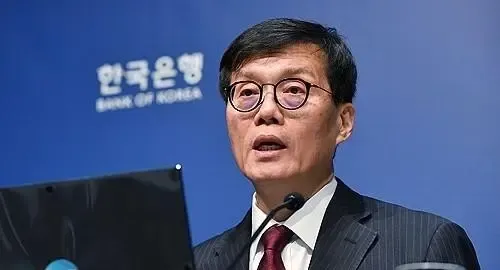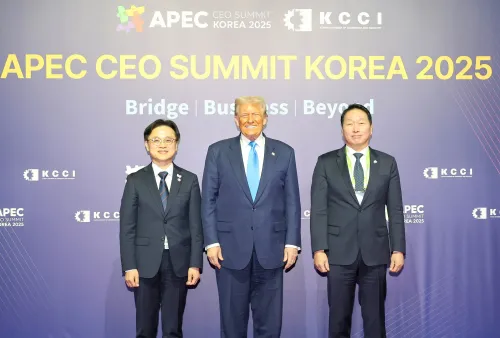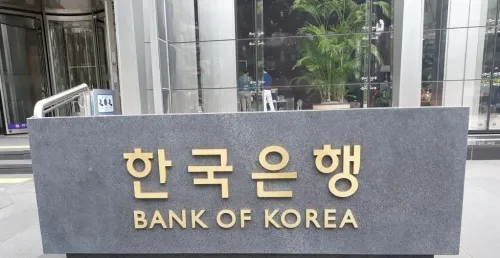BOK Chief Warns of Major Challenges from US Tariffs, Urges Supply Chain Diversification

Synopsis
Key Takeaways
- Global trade tensions pose challenges for South Korea.
- BOK Governor Rhee Chang-yong emphasizes need for supply chain diversification.
- Direct and indirect impacts from U.S. tariffs are significant.
- South Korea has made progress in diversifying supply chains.
- Economic growth outlook is uncertain due to tariff policies.
Seoul, April 24 (NationPress) The leading central banker of South Korea has indicated that the global trade tensions instigated by the United States' extensive tariff policies represent significant challenges for the nation's export-driven economy. This situation is expected to hasten the country's initiatives to diversify supply chains.
Bank of Korea (BOK) Governor Rhee Chang-yong made these comments during a conversation with CNBC in Washington, where he is participating in meetings of the Group of 20 (G20) finance ministers and central bank leaders, alongside International Monetary Fund–World Bank Group (IMF-WBG) discussions, according to reports from Yonhap news agency.
"As an export-oriented economy, the trade tensions are undoubtedly considerable headwinds. We will be directly impacted by the U.S. tariffs and also indirectly through their tariffs on other nations. For instance, our semiconductor production in Vietnam, automotive and electronics manufacturing in Mexico, and battery production in Canada will face repercussions," Rhee stated.
"I sincerely hope these trade tensions will subside, as they are detrimental to everyone," he added.
Despite this, South Korea possesses "certain advantages" in addressing the situation, having been "fortunate" to diversify its supply chains, especially from China, over recent years amidst rising competition and some political strains between the two countries.
"This represents a natural progression to diversify our supply chains and advance within the value chain. This trend will persist, but the current trade tensions are likely to accelerate this movement," Rhee noted.
Regarding economic growth, Rhee remarked that it is challenging to provide a growth forecast due to significant uncertainties related to U.S. tariff policies.
"At this point, I cannot ascertain what trade tension scenarios we should consider as baseline or reference scenarios," Rhee said. "I might have a clearer perspective after the tariff discussions with the U.S. scheduled for tomorrow.
South Korea and the U.S. are poised to engage in tariff discussions in Washington on Thursday (U.S. time), as the Donald Trump administration has deferred the implementation of 25 percent reciprocal tariffs on South Korean imports for 90 days.
According to preliminary data released by the BOK today, South Korea's real gross domestic product (GDP) contracted by 0.2 percent in the January-March quarter compared to the previous quarter.
Initially, the BOK anticipated a 1.5 percent expansion for the South Korean economy this year; however, Rhee later suggested that this outlook appeared "too optimistic" and that the central bank would present a revised figure in May.










